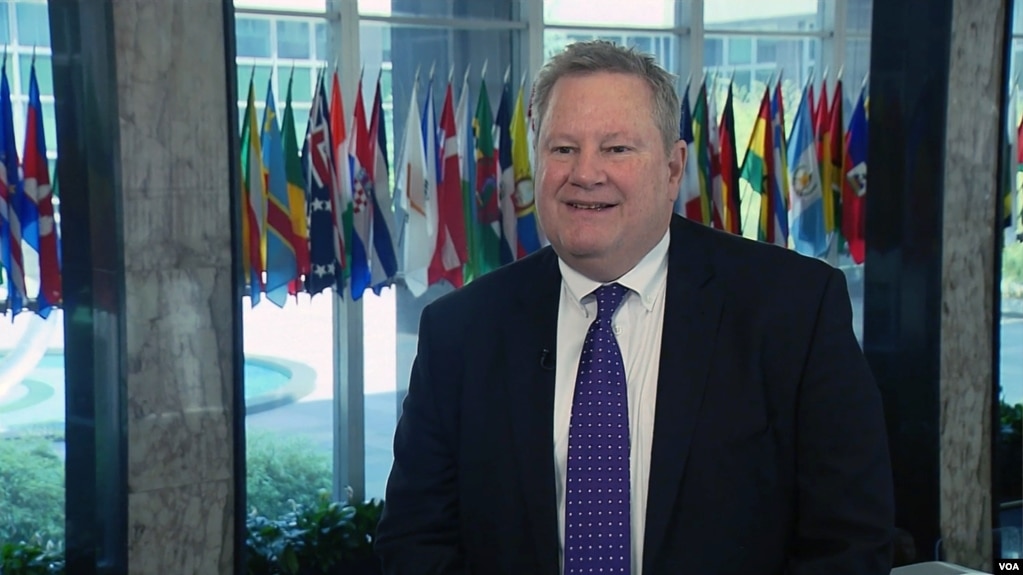In November 2022, Ethiopia’s government and leaders from the Tigray region reached a cease-fire, known as the Pretoria Agreement or Cessation of Hostilities Agreement, after a two-year civil war that devastated much of northern Ethiopia.
Mike Hammer, U.S. special envoy for the Horn of Africa, told VOA during an interview on Monday that Ethiopia is moving “in the right direction.” He noted that internally displaced people have started to return to their homes, and human rights abuses in Tigray have "dramatically decreased."
But he acknowledged continued conflicts in the Amhara and Oromia regions, stating that the U.S. is prepared to support any efforts to bring peace to these areas through dialogue.
Hammer traveled to Ethiopia last week to attend the African Union’s second meeting to review implementation of the Pretoria Agreement.
The following excerpts from the interview have been edited for brevity and clarity.
VOA: Given ongoing reports of starvation and food insecurity in Tigray, along with continued conflict in the Amhara and Oromia regions, what actions should the U.S. take to address these crises?
Mike Hammer, U.S. special envoy for the Horn of Africa: I did see some progress during my recent visit. We conducted the second review of the Cessation of Hostilities Agreement while I was in Ethiopia from July 8th to the 9th. I was encouraged to see internally displaced people starting to return to their homes, and we're starting to move towards a comprehensive program of disarmament, demobilization and reintegration of combatants (DDR.)
In November 2022, the guns were silent. Now, 20 months later, they remain silent. This is critically significant, because at that time, it was one of the bloodiest wars in the world. And so, we've worked together with the African Union to create an opportunity for peace. Of course, much more needs to be done. As I mentioned, we need to work on the return of internally displaced people, a comprehensive [Disarmament, Demobilization and Reintegration] program, transitional justice and accountability.
VOA: Are all the parties involved in the Pretoria Agreement following through with the promises they made?
Hammer: Both the government of Ethiopia and the Tigray Interim Regional Administration in the TPLF [Tigray People’s Liberation Front] remain very much committed to the agreement. That's critically important, obviously, to proceed with its implementation. Now, it hasn't been fully implemented, and that's why the United States continues to be very fully engaged in pressing both parties to deliver on their commitments.
One of the major commitments, of course, is that they should resolve their issues through political dialogue. So, we must avoid any return to violence. They must come to agreements on the way forward on how to resolve some of the contested areas. We are also prepared to continue to support any efforts to try to bring peace to other regions like Oromia and Amhara through dialogue.
VOA: Secretary of State Antony Blinken has said, “War crimes, crimes against humanity and ethnic cleansing” took place in the Tigray war. Why has the U.S. failed to bring this case to the International Criminal Court?
Hammer: It's very important that we called out the war crimes, crimes against humanity, and atrocities that were committed. We stand behind supporting the process that Ethiopia has launched to try to make sure that those responsible are held accountable. Ethiopia is developing a transitional justice process to ensure accountability for war crimes through the Ethiopian court system, and we are prepared to support that.
VOA: You also went to Djibouti, where you consulted on regional issues with the Intergovernmental Authority on Development. What was the consensus on ending the Sudan crisis?
Hammer: There’s a lot of concern over the situation in Sudan. I was also in Addis Ababa at the African Union and participated in the launch of preparatory meetings supporting Sudanese civilians. The entire region is very alarmed by what's happening. The United States is alarmed. The world needs to hear about the despair that the Sudanese people are experiencing in this continuous and horrific war. With a lack of humanitarian assistance, killings and atrocities are being committed.
VOA: Do you see a resumption of Sudan peace talks soon?
Hammer: U.S. Special Envoy for Sudan Tom Perriello is working very hard to move forward on any opportunity to launch new cease-fire talks in Jeddah, or wherever it might be possible.






